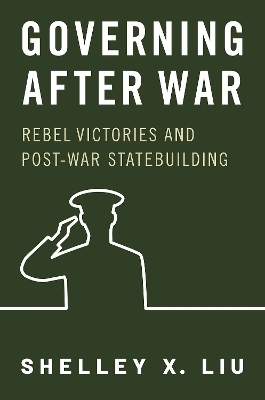
Governing After War
Oxford University Press Inc (Verlag)
978-0-19-769671-2 (ISBN)
The book examines wartime rebel-civilian ties under rebel governance and explains how these ties--along with rebel governing institutions--shape the rebel victors' post-war various resource allocation strategies to establish control at the sub-national level. In turn, successfully balancing resources dedicated toward development and security helps the victor to consolidate power. The book relies on mixed-methods evidence from Zimbabwe and Liberia, combining interviews, focus groups, and archival data with fine-grained census, administrative, survey, and conflict datasets to provide an in-depth examination of subnational variation in wartime rebel behavior and post-war governing strategies. A comparison of Zimbabwe and Liberia alongside four additional civil wars in Burundi, Rwanda, Côte d'Ivoire, and Angola further demonstrates the importance of wartime civilian tie-formation for post-war control. The argument's central insights point to war and peace as part of a long state-building process, and suggest that the international community should pay attention to sub-national political constraints that new governments face. Her findings offer implications for recent rebel victories and, more broadly, for understanding the termination, trajectories, and political legacies of such conflicts around the world.
Shelley Liu is Assistant Professor of Public Policy at Duke University. Her research examines how citizens relate to the state, and how these citizen-state relationships affect post-conflict development and state-building in developing contexts. Her scholarship has been published in the American Journal of Political Science, World Politics, Journal of Peace Research, Politics & Society, and PLOS ONE.
List of Figures
List of Tables
Acknowledgements
Acronyms
I Governing After War
Chapter 1 Introduction
Chapter 2 Statebuilding Through Rebel-Civilian Ties
II Resource Allocation
Chapter 3 Introducing the cases
Chapter 4 The Zimbabwe LiberationWar (1972-1979)
Chapter 5 The Liberia CivilWar (1989-1996)
III Consolidating Power
Chapter 6 Divergent Trajectories Across Rebel Victories
Chapter 7 External Comparisons
IV Implications
Chapter 8 Implications and Future Research
Bibliography
Appendix A Security Challenges After War
Appendix B Zimbabwe LiberationWar
Appendix C First Liberia CivilWar
| Erscheinungsdatum | 08.03.2024 |
|---|---|
| Verlagsort | New York |
| Sprache | englisch |
| Maße | 229 x 147 mm |
| Gewicht | 386 g |
| Themenwelt | Sozialwissenschaften ► Politik / Verwaltung ► Vergleichende Politikwissenschaften |
| ISBN-10 | 0-19-769671-6 / 0197696716 |
| ISBN-13 | 978-0-19-769671-2 / 9780197696712 |
| Zustand | Neuware |
| Haben Sie eine Frage zum Produkt? |
aus dem Bereich


